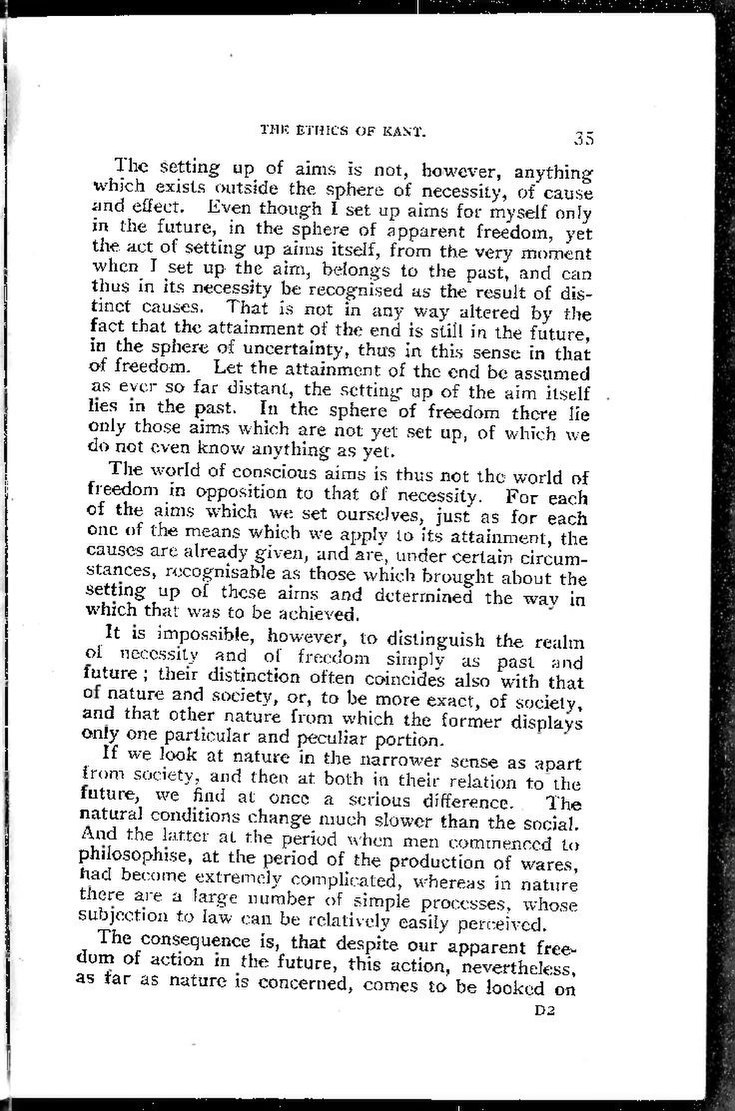The setting up of aims is not, however, anything which exists outside the sphere of necessity, of cause and effect. Even though I set up aims for myself only in the future, in the sphere of apparent freedom, yet the act of setting up aims itself, from the very moment when I set up the aim, belongs to the past, and can thus in its necessity be recognised as the result of distinct causes. That is not in any way altered by the fact that the attainment of the end is still in the future, in the sphere of uncertainty, thus in this sense in that of freedom. Let the attainment of the end be assumed as ever so far distant, the setting up of the aim itself lies in the past. In the sphere of freedom there lie only those aims which are not yet set up, of which we do not even know anything as yet.
The world of conscious aims is thus not the world of freedom in opposition to that of necessity. For each of the aims which we set ourselves, just as for each one of the means which we apply to its attainment, the causes are already given, and are, under certain circumstances, recognisable as those which brought about the setting up of these aims and determined the way in which that was to be achieved.
It is impossible, however, to distinguish the realm of necessity and of freedom simply as past and future; their distinction often coincides also with that of nature and society, or, to be more exact, of society, and that other nature from which the former displays only one particular and peculiar portion.
If we look at nature in the narrower sense as apart from society, and then at both in their relation to the future, we find at once a serious difference. The natural conditions change much slower than the social. And the latter at the period when men commenced to philosophise, at the period of the production of wares, had become extremely complicated, whereas in nature there are a large number of simple processes, whose subjection to law can be relatively easily perceived.
The consequence is, that despite our apparent freedom of action in the future, this action, nevertheless, as far as nature is concerned, comes to be looked on
